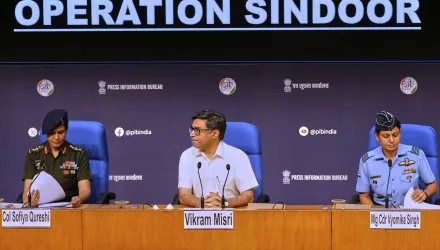Playing with Fire: Provocation, Signaling, and Unwanted Crisis Escalation
Speaker: Hyun-Binn Cho, Postdoctoral Research Fellow, International Security Program/Project on Managing the Atom
During international crises, states often take costly actions to signal resolve. Such coercive actions, however, can put greater political and psychological pressure on the opponent to counter-escalate. When costly signals are more "provocative," do they make unwanted crisis escalation more likely, or do they make the signal-sender look tough and help induce the opponent to back down? Indeed, why do states sometimes appear to deliberately engage in provocative actions to demonstrate resolve? This seminar addresses these puzzles using game-theoretic analysis and two case studies of crises involving China and the United States.
Please join us! Coffee and tea provided. Everyone is welcome, but admittance will be on a first come–first served basis.



